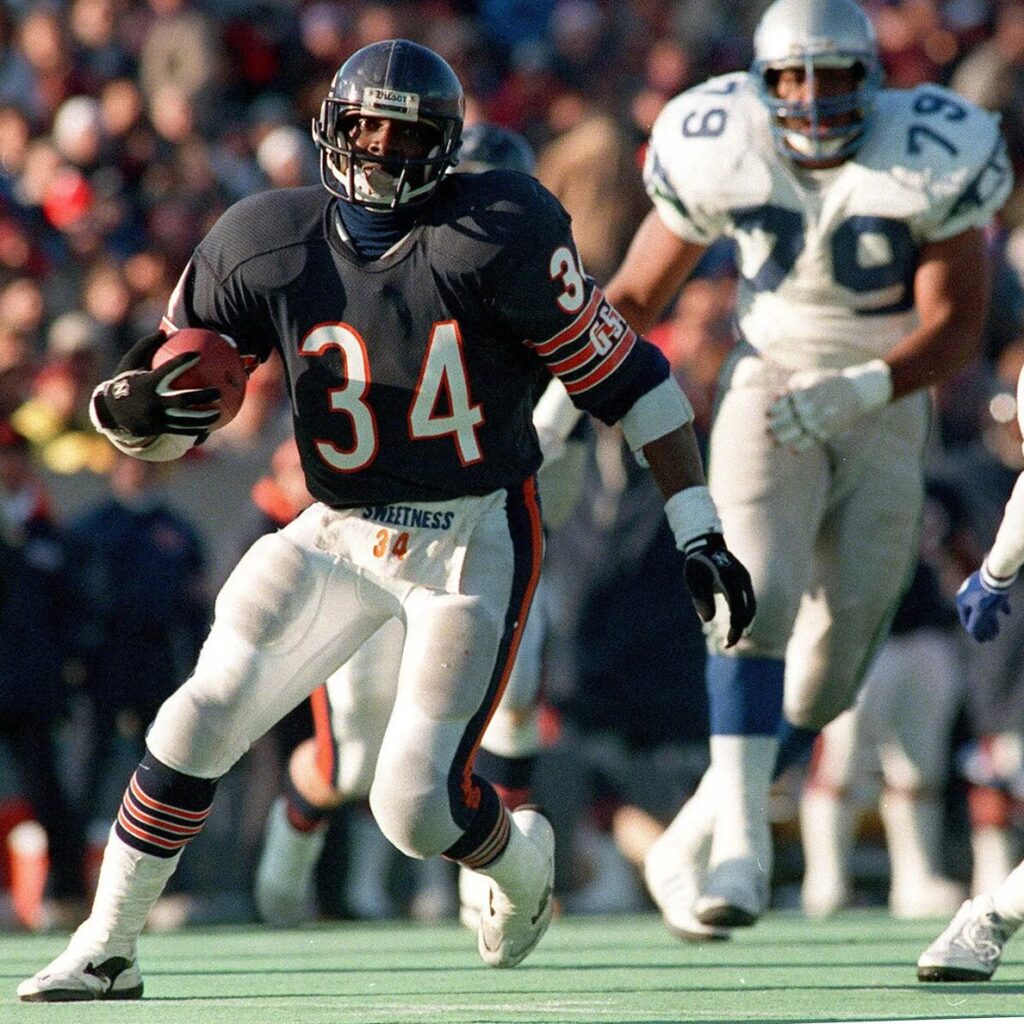
Never Die Easy: The Enduring Wisdom of Walter Payton
Walter Payton, one of the greatest running backs in NFL history, left behind more than just records and accolades. I have been reflecting on his words, “Never die easy. Why run out of bounds and die easy? Make that linebacker pay. It carries into all facets of your life. It’s okay to lose, to die, but don’t die without giving your best,” which transcends the football field. Known as “Sweetness” for his smooth playing style, Payton’s mindset was anything but soft. This is a call to resilience, effort, and purpose—a blueprint for living life with unrelenting determination.
Payton’s words reflect the gritty reality of football especially from his era. Running out of bounds might save a player from a brutal hit, but Payton saw it as a surrender, a way to “die easy.” Instead, he urged us to confront the linebacker—to meet the challenge head-on and make it cost something. This wasn’t just bravado; it was strategy. Payton’s career stats—16,726 rushing yards, 110 touchdowns, and a Super Bowl ring with the 1985 Chicago Bears—prove he lived this ethos. He didn’t shy away from contact; he thrived on it, turning defenders into unwilling participants in his legacy.
But Payton’s wisdom stretches far beyond the gridiron. “It carries into all facets of your life” is the pivot point of his message. Football was his canvas, but the principle applies universally. Life, like a linebacker, throws obstacles in our path—whether it’s a tough job, a personal setback, or an unexpected loss. Running out of bounds might feel safe, a way to avoid the hit, but Payton challenges us to push through. Why settle for an easy exit when you can leave a mark? The “linebacker” could be a difficult conversation, a looming deadline, or even self-doubt. Making it “pay” means facing it with everything you’ve got.
Payton’s acceptance of losing—“It’s okay to lose, to die”—is refreshingly honest. Perfection isn’t the goal; effort is. Losing isn’t failure if you’ve given your best. This resonates in a world obsessed with winning at all costs. Payton reminds us that the scoreboard doesn’t define us—our fight does. His own life mirrored this: diagnosed with a rare liver disease in 1999, he didn’t retreat. He used his platform to raise awareness until his death at 45, ensuring his struggle mattered.
In practical terms, “never die easy” is a daily challenge. It’s choosing the harder workout, staying late to perfect a project, or standing up when it’s easier to stay silent. It’s not about reckless abandon but intentional effort. Payton’s legacy teaches us that the hits we take shape us, and the price we exact from our challenges defines our story.
Walter Payton didn’t just play football—he lived a philosophy. “Don’t die without giving your best” is his parting gift, a reminder that ease is the enemy of greatness. So, next time life lines up across from you, don’t run out of bounds. Make it pay.